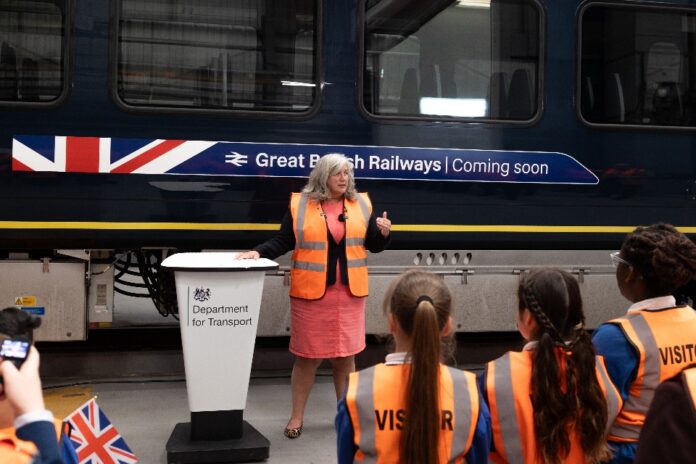The UK railway network stands at the precipice of a monumental transformation. May 25, 2025, marked a historic day with South Western Railway (SWR) becoming the first service to transition back into public control under new legislation, signaling the end of nearly three decades of rail in its current format and the dawn of a new era.
This move is not merely a change in ownership; it’s a strategic reset embodied by the forthcoming Great British Railways (GBR), which promises to fundamentally reshape the future of the nation’s railways.
The prevailing sentiment, as highlighted by two-thirds of Britons supporting public ownership, underscores a widespread desire for change from the public. The promise of saving taxpayers up to £150 million annually in fees, with every penny reinvested for passenger benefit, provides a compelling financial rationale. However, the vision for GBR extends far beyond fiscal prudence.
Great British Railways: A Catalyst for Cultural and Operational Change
We are told that the name “Great British Railways” is more than a label; it’s a statement of intent. With a focus on delivering a commitment to high standards of service and delivery, it aims to instill a sense of national pride back into a system that has long been criticised for unreliability and private profiteering. The privatisation model, with 14 siloed operators each driven by their own commercial incentives, is being replaced by a unified, nationally owned body with a singular focus: serving the public.
A key tenet of GBR’s strategy is the integration of track and train management. This move, a direct departure from the privatised model, is expected to enable seamless operations, significantly enhancing accountability and reliability. By reducing delays and cancellations, GBR aims to encourage greater ridership for work, education, and leisure, thereby providing a tangible boost to both national and regional economies as part of the government’s wider “Plan for Change.”
Earning the Right to be “Great British Railways”
The Transport Secretary, Heidi Alexander, has made it clear that operators, starting with SWR, will have to “earn the right to be called ‘Great British Railways’.” This signifies a commitment to rigorous, bespoke performance standards covering critical areas such as punctuality, cancellation rates, and overall passenger experience. This performance-driven approach is designed to rebuild a world-class public service.
The transition of all passenger services to public ownership by the end of 2027, with integration into GBR, highlights the government’s steadfast commitment. This phased approach, linked to the expiry or early termination of existing contracts, ensures a smooth and cost-effective handover for taxpayers.
Secretary of State for Transport, Heidi Alexander, said at the launch of SWR into GBR:
“Today is a watershed moment in our work to return the railways to the service of passengers. Trains from Waterloo to Weymouth, Bournemouth and Exeter will be run by the public, for the public.
“But I know that most users of the railway don’t spend much time thinking about who runs the trains – they just want them to work. That’s why operators will have to meet rigorous performance standards and earn the right to be called Great British Railways.
“We have a generational opportunity to restore national pride in our railways and I will not waste it.”
Beyond Ownership: A New Mindset for Rail Professionals
The sentiment from within the industry echoes this positive outlook. Lawrence Bowman, Managing Director of South Western Railway, expressed excitement about the transition, emphasising how public ownership will facilitate a focus on improving reliability and increasing capacity. He said:
“I’m excited to join and lead the excellent team at South Western Railway, who come to work every day to deliver the best possible service for our customers and moving into public ownership will make it easier for them to do so.
“My immediate priority is to work with colleagues to develop a plan for SWR, that will make the most of the new, simpler industry processes to deliver improvements in reliability and an increase in capacity.
“Over the coming years, I will focus on ensuring SWR moves into Great British Railways as a truly integrated industry-leading operation that delivers an excellent service to its passengers and the local communities we serve.”
Ben Plowden, Chief Executive of Campaign for Better Transport, rightly identifies the creation of GBR as a “once-in-a-generation opportunity.” He said:
“The creation of Great British Railways presents a once-in-a-generation opportunity to change how the rail system works – structurally, financially and operationally – and put passengers and freight operators first.
“Today marks a turning point for Britain’s railways and it’s good to see the government’s plans for reforming the railways continuing at pace.”
In essence, Great British Railways is poised to be the architect of a new era for UK rail. It’s a vision built on accountability, reliability, and a renewed focus on the passenger. We will see if this vision is realised in the coming years.





